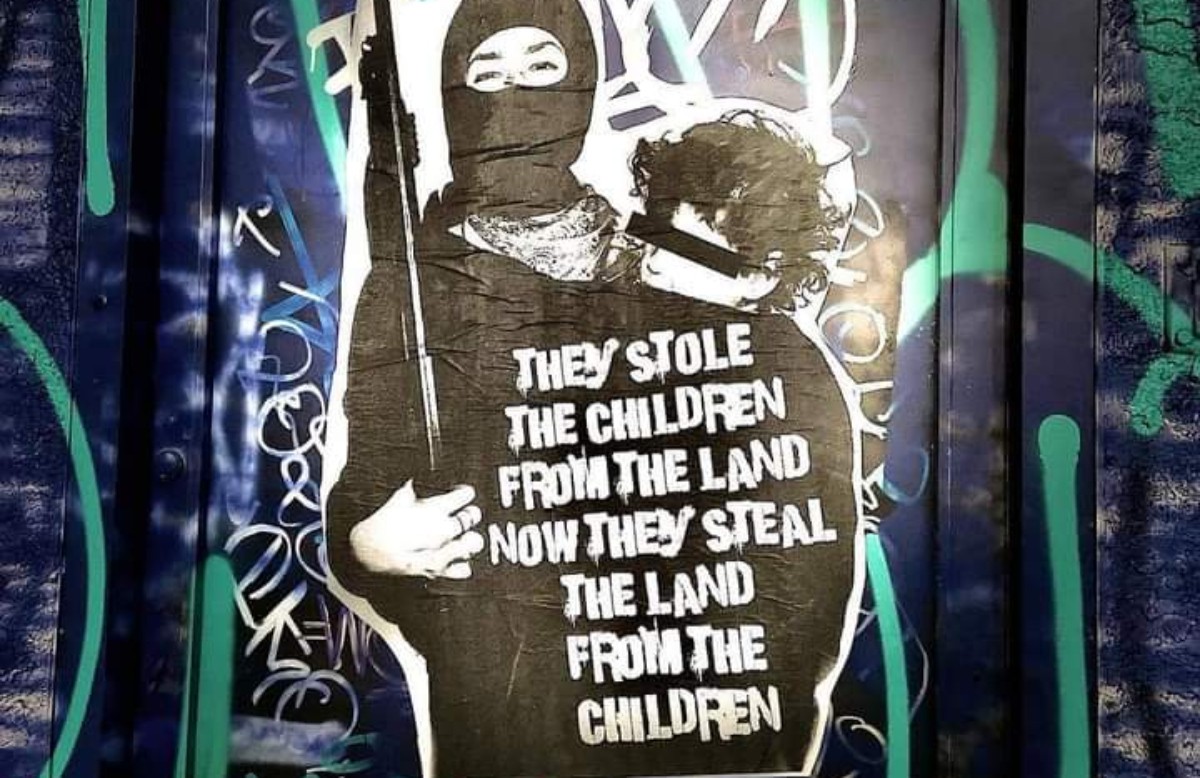Filed under: Development, Editorials, Environment, Midwest, Repression

A critical look at the impact of repression on the Line 3 struggle. Originally posted to Earth First!
The time is finally here. Enbridge has finished the construction of Line 3. Despite years of activists fighting and obstructing the project, by the time you read these words tar sands oil will flow through it. This reality pains us as it surely does countless others: Those who live in the regions the pipeline cuts through, those who have put their bodies on the line to stop it, and those who believe in a world without extractive industry.
We write to you as a handful of friends who have been involved in the campaign to stop Line 3 at various points over the last three to four years. We’ve also participated in various other social movements and uprisings for many years, including the George Floyd uprising here in Minneapolis, and have become all too familiar with their waves, crests, and crashes. We’ve seen the traumatizing effects of both state violence as well as the loss of community felt in the aftermath of collective action. We’ve faced these feelings in the struggle to stop Line 3, we’ve supported our friends when they’ve faced them, and we know that right now, upon the pipeline’s completion, that you are likely facing them as well. We are writing this so that you know you are not alone in this process.
Climate change is an urgent reality, especially for our current generation. We are consistently bombarded with new information on how fast the arctic is melting, which species are going extinct, or how soon certain regions will be underwater. For most of our lives, we have witnessed if not directly experienced one ‘natural’ catastrophe after another. It only makes sense that when we face the magnitude of the problem, we are gripped by the urgency to take action. We only have so many years, scientists say, before certain changes will become irreversible. The only reasonable thing left to do is to take action, whatever that may be, immediately.
To grapple with the urgent reality of climate change, we’ve come to understand it as something immanent, not imminent. Climate change already defines our worlds in the present and this realization does hurt us. Yet, rather than see only a dark future looming ahead, this realization frees us to think about how to act against climate change, and likewise against colonial domination, without being constrained to the need for urgency. We focus on immanence because the urgency of imminence feeds into a particular ideology of reaction that ultimately becomes an obstacle in building the change we wish to see. In addressing climate change the question of how we fight is intimately connected with the question of how we live, and cannot be separated. This lens of immanence returns the possibility of living to the fight against climate change. When urgency is the priority, life is constantly sidelined in favor of what we are told are the most pragmatic approaches, no matter how much we have to sacrifice to accomplish them. Yet, what’s a criminal record or a lifetime of trauma in the face of global catastrophe?
But that trauma is real. Going to jail, especially for the first time, is a traumatic experience for many people—even if you get to prepare for it in advance. The loss of agency, the near-total submission to state power is not something to shrug off. Nor can it be shrugged off when it happens to our friends and comrades. It has to be recognized that a lot of what went into the movement against Line 3 was ultimately traumatizing.
To experience this, and to discover that Line 3 was built regardless, only adds to the pain we feel right now. We write to you to say that what you’re likely feeling right now is valid. So many people gave up so much for this movement and their lives have been altered as irreversibly as the planet. We all need the space to come to terms with this and we hope to offer you this space by naming this experience.
The issue of burnout can’t adequately capture the loss and hopelessness of this experience, nor, truly, can our words. We can’t offer you a perfect solution or a way out. This is only something we can discover together—by discussing our experiences with those close to us, sharing our feelings, processing them both collectively and on our own. If we can develop networks of affinity groups to carry out direct action, there shouldn’t be anything stopping us from developing networks of care and resilience as well. By the sheer fact of organizing and living together for the past months and years, we might be surprised to find out how much of these networks have already been built without realizing it.
It is tempting to ask if it was all worth it—and there’s no one who can answer that question except for yourself. We expect many young people for whom this was the first campaign they joined will want to quit activism forever. We won’t tell you not to, but we will say that it doesn’t have to be this way. The things we can do, collectively, can be beautiful beyond our wildest dreams. We know because we’ve done it before, and we’ll just as surely do it again.
Love to all the water protectors,
September 2021





